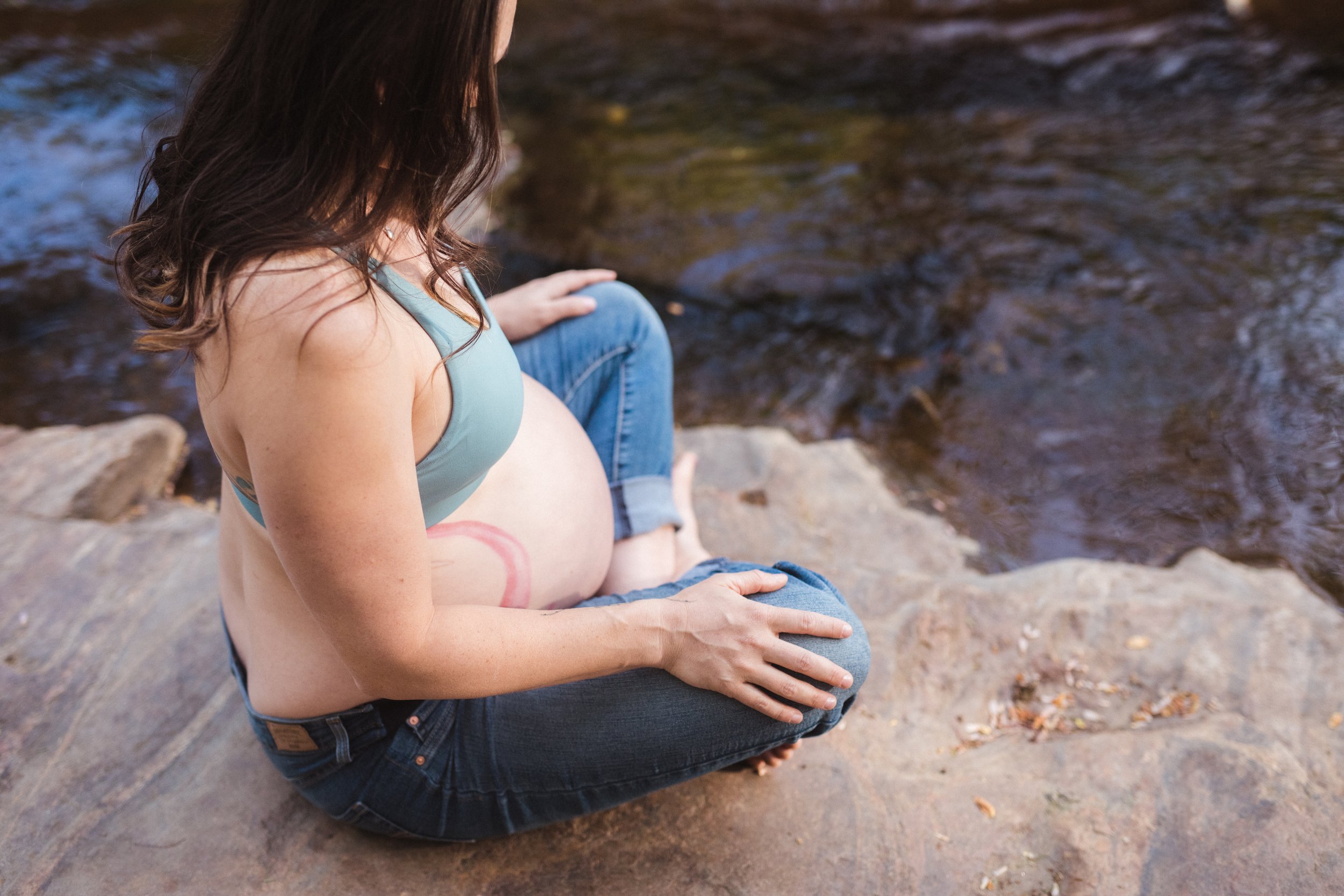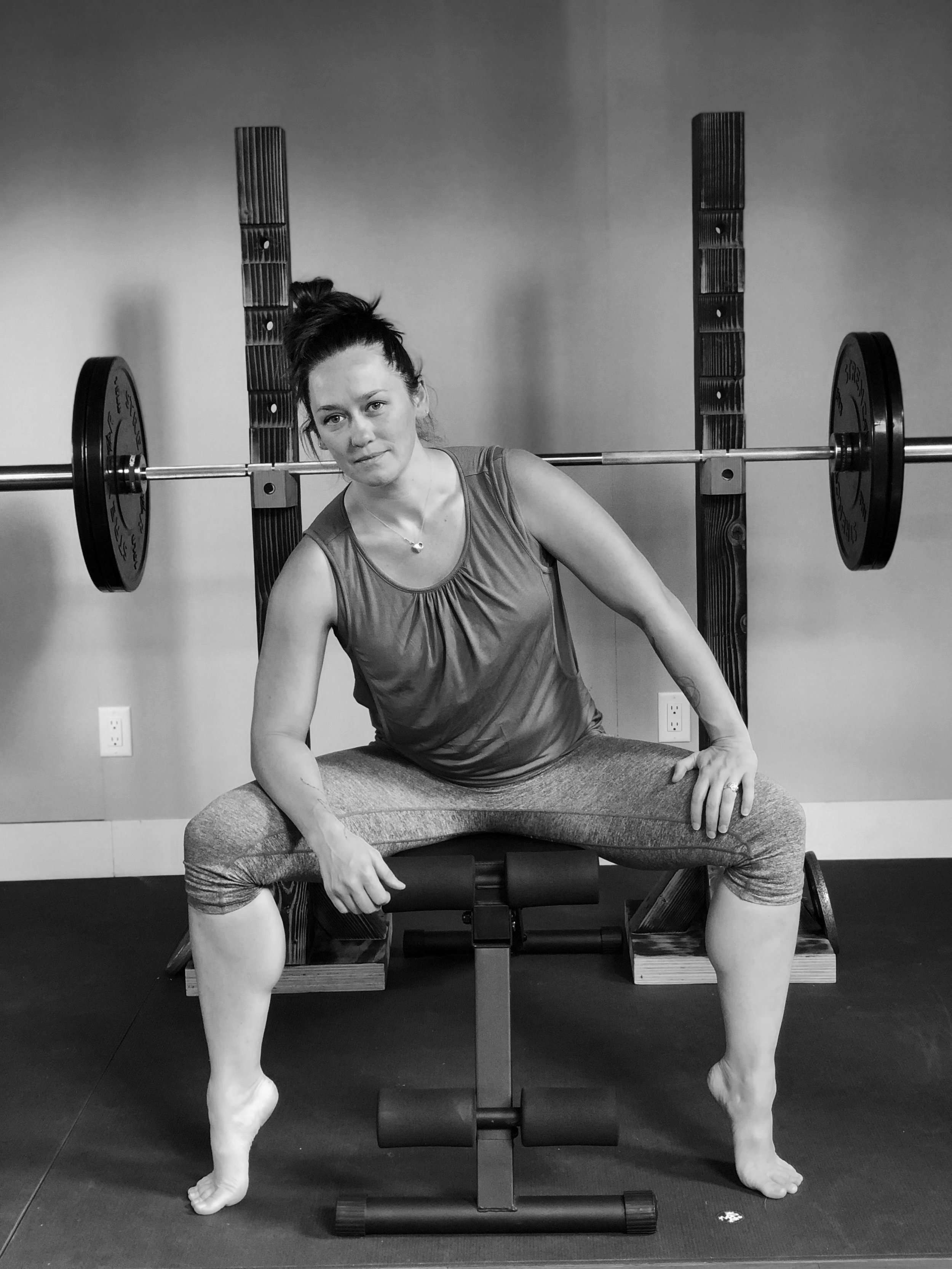
Prenatal and Postpartum Support
(Certified by Dr. Sarah Duvall’s CES course)
“When Women Heal Themselves, They Heal The World”
Prenatal Sessions
Incorporating a mix of strength, mobility, and aerobic exercises during pregnancy can support a healthier pregnancy, improve physical and mental well-being, and prepare the body for a smoother labor and postpartum recovery.
Postpartum Sessions
Postpartum exercise, with a focus on pelvic floor rehabilitation, core strength, and mobility, is essential for the recovery process. Strengthening the pelvic floor and core muscles after childbirth not only supports physical recovery but also helps prevent long-term issues like pelvic organ prolapse, urinary incontinence, and diastasis recti. Postpartum exercises promote overall pelvic health, improve posture and mobility, and help new mothers regain their strength and confidence.

“In carrying life, may we remember to also honor our lives, in these strong, magnificent, powerful bodies”
Research on the benefits of maternal physical activity for children's health has grown over the years, with several studies suggesting that when mothers engage in regular exercise, it positively influences the health outcomes of their children. The relationship between maternal exercise and child health can be seen through various mechanisms, including both direct and indirect effects.
LEARN MORE BELOW:
-
Several studies have focused on how physical activity during pregnancy impacts fetal development and later child health. These findings are based on the idea that a mother's physical activity can influence prenatal and postnatal environments, affecting the child’s growth, development, and future health risks.
Key Findings:
Fetal Development: Research indicates that maternal exercise during pregnancy may improve cardiovascular health, metabolic function, and lung development in the fetus. For example, studies have shown that moderate exercise can help regulate gestational weight gain, which is associated with better birth outcomes and a lower risk of infant obesity.
Reduced Risk of Obesity: Children born to mothers who engage in regular physical activity during pregnancy tend to have a lower risk of childhood obesity. This may be due to improved placental function, better regulation of insulin, and favorable hormone levels (such as reduced leptin and better insulin sensitivity), all of which contribute to healthier weight gain patterns in the offspring.
Brain Development: Maternal exercise can also have a positive effect on the brain development of the child. Some studies suggest that physical activity during pregnancy enhances brain development in infants, possibly leading to better cognitive outcomes later in life.
-
While the biological impacts are important, there is also significant evidence suggesting that a mother's own activity levels influence her child's health through environmental factors, including behavior modeling, lifestyle habits, and social support.
Key Findings:
Modeling Physical Activity: Children are more likely to engage in physical activity themselves if they observe their mothers participating in exercise. Maternal exercise can set a positive example, fostering a culture of physical activity within the family. This is especially important in early childhood when habits are being formed.
Healthier Family Environment: Active mothers are often more likely to establish an environment that supports healthful eating, active play, and positive lifestyle choices. Families with physically active mothers may have more outdoor activities, balanced meals, and a greater emphasis on well-being, which benefits the children.
Social Support and Encouragement: A mother who exercises regularly may be more involved in encouraging her children to be active, whether through enrolling them in sports, facilitating play, or promoting outdoor activities. This kind of social support is crucial for developing long-term health habits in children.
-
Maternal physical activity can also have indirect benefits for children through improvements in maternal mental health. Exercise is known to reduce stress, anxiety, and depression, which can affect family dynamics and the overall home environment.
Reduced Stress and Better Parenting: Mothers who exercise may experience lower levels of stress and improved mood, which can contribute to more positive parenting behaviors. Positive mental health in mothers has been associated with better emotional and psychological outcomes for children, as well as healthier relationships.
-
Several studies and reviews have demonstrated the link between maternal physical activity and child health outcomes:
A study published in the "American Journal of Obstetrics and Gynecology" (2016) reviewed the effects of maternal exercise during pregnancy and found that physical activity was associated with improved birth outcomes, reduced risk of preterm birth, and better infant health at birth. The study also noted that maternal exercise was linked to improved long-term health in children.
The "Active Moms Project" (2018), a study of postpartum mothers, found that mothers who engaged in regular physical activity had children who were more active, with better physical fitness and lower rates of obesity compared to children of sedentary mothers.
A systematic review in "Pediatric Exercise Science" (2021) summarized studies showing that maternal exercise was linked to better physical and cognitive outcomes in children, including lower body fat, higher cardiovascular fitness, and improved executive function.
The "Impact of Maternal Exercise on Child Health" review (2019) published in Exercise Immunology Reviewhighlighted that maternal physical activity during pregnancy and after childbirth is associated with lower risks of childhood obesity, better physical fitness in children, and improved neurodevelopmental outcomes.
-
Overall, the body of research supports the idea that maternal exercise—both during pregnancy and postnatally—has numerous benefits for children’s health. These benefits range from improved birth outcomes to better long-term physical and cognitive health, with indirect effects stemming from the mother’s role as a health model and influencer within the family. Thus, encouraging maternal physical activity not only benefits the mother’s health but also contributes to a healthier, more active lifestyle for children.
THIS IS A Safe, Inclusive Space for Everyone
I believe that fitness and wellness are for everyone, regardless of gender, sexual orientation, race, or background. As a mother and personal trainer, I understand that every individual is unique, and I am committed to creating a space where all bodies are celebrated, and every person feels valued, supported, and empowered.
Whether you are just starting your fitness journey or are looking to take it to the next level, you will find a non-judgmental, welcoming environment here. I am proud to serve the LGBTQIA+ community, people of all racial and ethnic backgrounds, and individuals of all gender identities. I am dedicated to respecting and honoring each person’s personal experience, and I ensure that my training methods are accessible, compassionate, and tailored to meet your specific needs.
Together, we’ll focus on your goals, your well-being, and your strength—both physical and mental. I believe in empowering people of all walks of life, and I’m here to help you thrive.
You are always welcome here.
🏳️🌈🤝🏽
-Cassie













